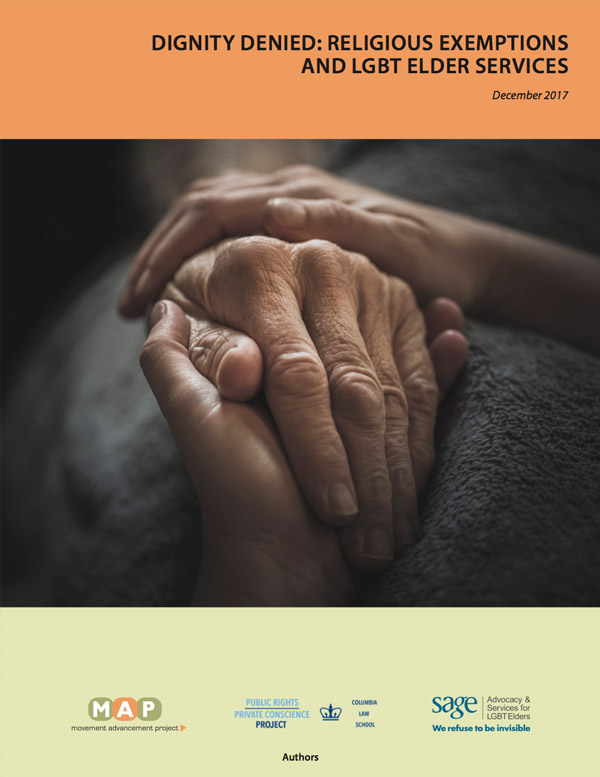The Bottom Line
It is estimated that there are approximately 2.7 million LGBT adults aged 50 and older in the United States, 1.1 million of whom are 65 and older. LGBT older adults, like many older Americans in the United States, rely on a network of service providers as they age–for community programming and congregate meals, for health care, and for housing ranging from independent living to skilled nursing. Research finds that a majority of these services are offered by religiously affiliated organizations. While many of these religiously affiliated facilities provide quality care for millions of older adults, there is a coordinated effort to pass religious exemption laws, issue executive orders and agency guidance, and to litigate court cases to allow individuals, businesses, and even government contractors and grantees to use religion to discriminate. These laws are particularly worrisome for LGBT elders. Religious exemption laws jeopardize the security and safety of LGBT older adults at a time when they are most vulnerable and most in need.
Dignity Denied: Religious Exemptions and LGBT Elder ServicesDownload
Recommended citation:
Movement Advancement Project, SAGE, and Public Rights/Private Conscience Project at Columbia Law School. December 2017.
Dignity Denied: Religious Exemptions and LGBT Elder Services. https://www.lgbtmap.org/dignity-denied-lgbt-older-adults (date of access).


